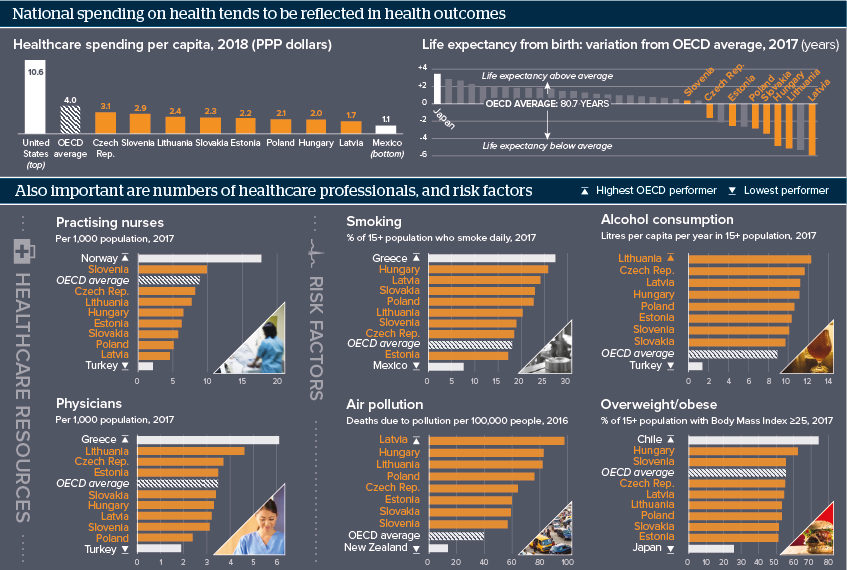Public health is low priority in Central Europe
East European OECD countries underperform on life expectancy, premature death and health risks; health spending is lower
Source: OECD, Health at a Glance 2019
Outlook
The OECD’s eight Central European and Baltic (CEB) countries lag behind the others in many health indicators, according to the 36-strong organisation’s Health at a Glance 2019. Seven of the eight are among the twelve OECD members with below-average life expectancy; all eight have below-average health expenditure per capita. CEB performs relatively well only for obesity.
Given the positive association between spending and outcomes, projections showing expenditure as a share of GDP rising by 1.4 percentage points in 2015-30 across the OECD but either rising more slowly or actually falling in CEB suggest that regional governments seem not to regard public health as a high priority.
Impacts
- An unhealthy workforce plus population ageing will put pressures on both availability for work and staffing to care for the aged and infirm.
- Governments have been prepared to spend more on healthcare professionals’ pay for the sake of staff retention, given the lure of emigration.
- Poles are concerned about the quality of healthcare but not enough to swing the October 2019 elections against ruling Law and Justice.
See also
- Cost-of-living crisis will not hurt Hungary’s rulers - Sep 12, 2022
- EU air quality laggards are all Eastern - Jan 24, 2017
- More graphic analysis
